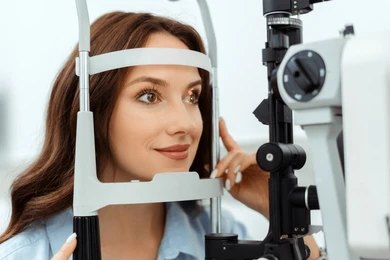
The Importance of Regular Eye Exams: What to Expect and Why You Should Prioritize Them
Our eyes are one of our most valuable senses, allowing us to connect with the world around us. However, many people neglect regular eye check-ups until a problem arises. Routine eye exams are crucial, not only for keeping your vision sharp but also for detecting early signs of various eye conditions. Facilities like Indira Gandhi Eye Hospital Gurgaon provide comprehensive eye exams that can identify potential issues early, ensuring effective treatment.
Why Eye Exams Are Essential
- Early Detection of Eye Diseases
Conditions like glaucoma, diabetic retinopathy, and cataracts often progress silently without noticeable symptoms in their early stages. An eye exam can detect these issues early, allowing for timely intervention and preventing further vision loss. - Screening for Common Vision Problems
Vision problems such as nearsightedness, farsightedness, and astigmatism can often be corrected with glasses, contacts, or surgery. Regular eye exams ensure that your prescription is up-to-date, helping you see more clearly and comfortably. - Children’s Eye Health
Eye exams are particularly important for children, as undiagnosed vision issues can impact learning and development. Early detection of conditions like lazy eye or strabismus can help ensure proper visual development. - Monitor Changes in Vision with Age
As we age, our risk for conditions like macular degeneration and presbyopia increases. Regular check-ups can help monitor changes in vision and provide appropriate corrective measures, such as reading glasses or other treatments. - Comprehensive Eye Health Assessment
A comprehensive eye exam doesn’t just test for vision clarity. It also includes screenings for eye health and overall wellness, as eye doctors can often detect signs of other health conditions like high blood pressure and diabetes.
What to Expect During an Eye Exam
During a comprehensive eye exam, the ophthalmologist will conduct a series of tests to evaluate your vision and eye health, including:
- Visual Acuity Test
This test measures how clearly you see from different distances. You’ll read letters from a chart to determine your vision clarity. - Refraction Test
Using a phoropter, your eye doctor will determine the exact lens prescription needed for correcting your vision. - Eye Muscle Test
This checks for any abnormalities in eye movement and alignment, which are essential for comfortable and effective vision. - Pupil Dilation
By dilating the pupils, the doctor can get a better view of the retina and optic nerve, which helps in detecting diseases like glaucoma or retinal issues. - Glaucoma Screening
This test measures the pressure in your eyes to identify signs of glaucoma, which can lead to vision loss if left untreated.
FAQs
Q: How often should I have an eye exam?
A: It is recommended to have an eye exam every one to two years, or more frequently if you have specific risk factors such as diabetes or a family history of eye disease.
Q: Are eye exams only for people with vision problems?
A: No, even those with 20/20 vision should have regular eye exams to ensure eye health and detect any underlying conditions that may not affect vision initially.
Q: Is dilation necessary for every eye exam?
A: Not always. Your doctor will determine if dilation is necessary based on your age, health, and risk factors.
Regular eye exams are a fundamental part of maintaining overall health and wellness. They provide a proactive approach to eye care, allowing for early detection of potential issues and timely intervention. For residents in Gurgaon, Best Eye Hospital Gurgaon offers a range of comprehensive eye care services to help you keep your vision in top shape.